Bardet: I did the time trial with my head rather than my legs
Frenchman salvages Tour de France podium spot in Marseille
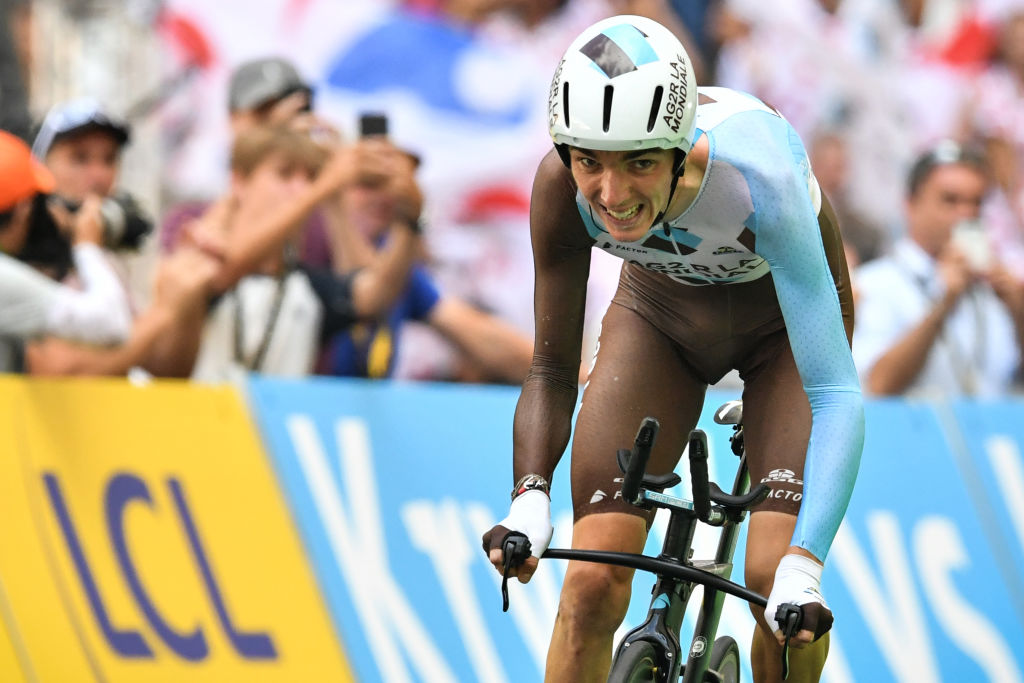
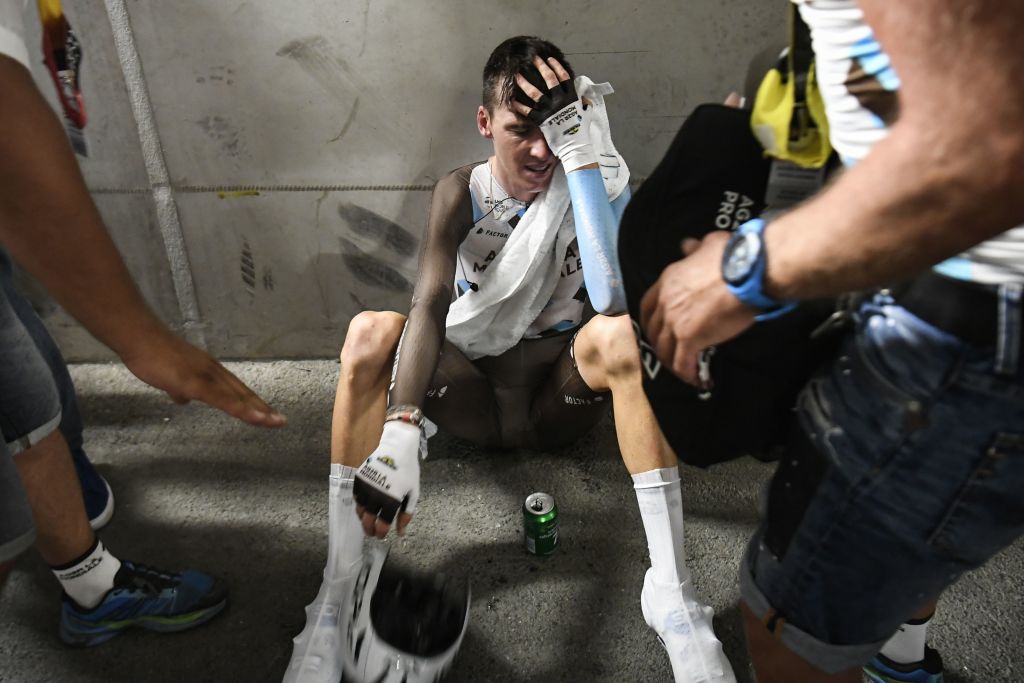
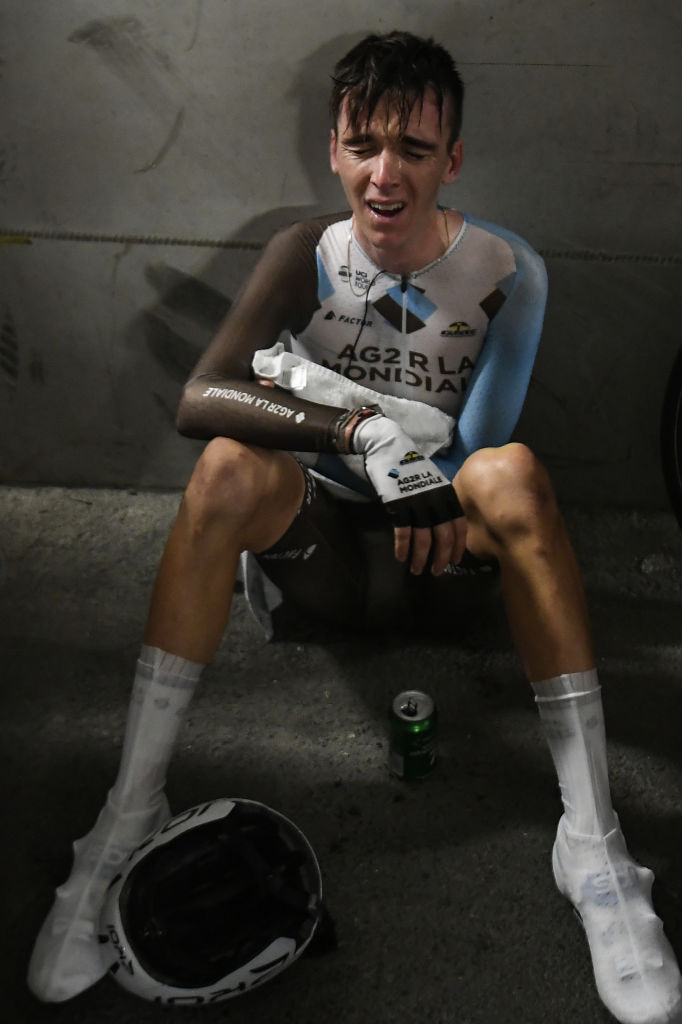
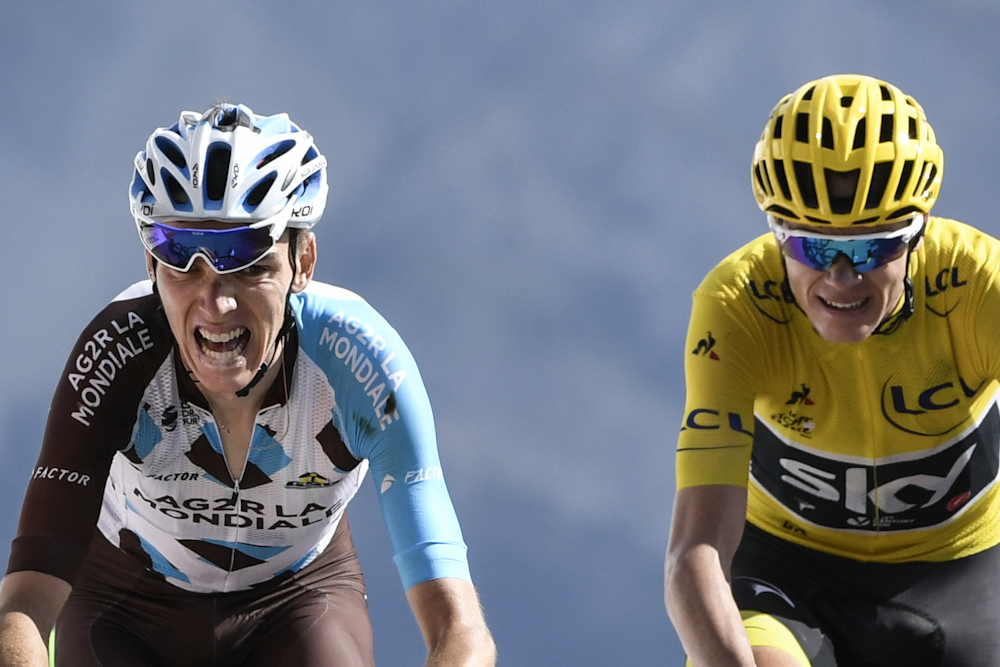
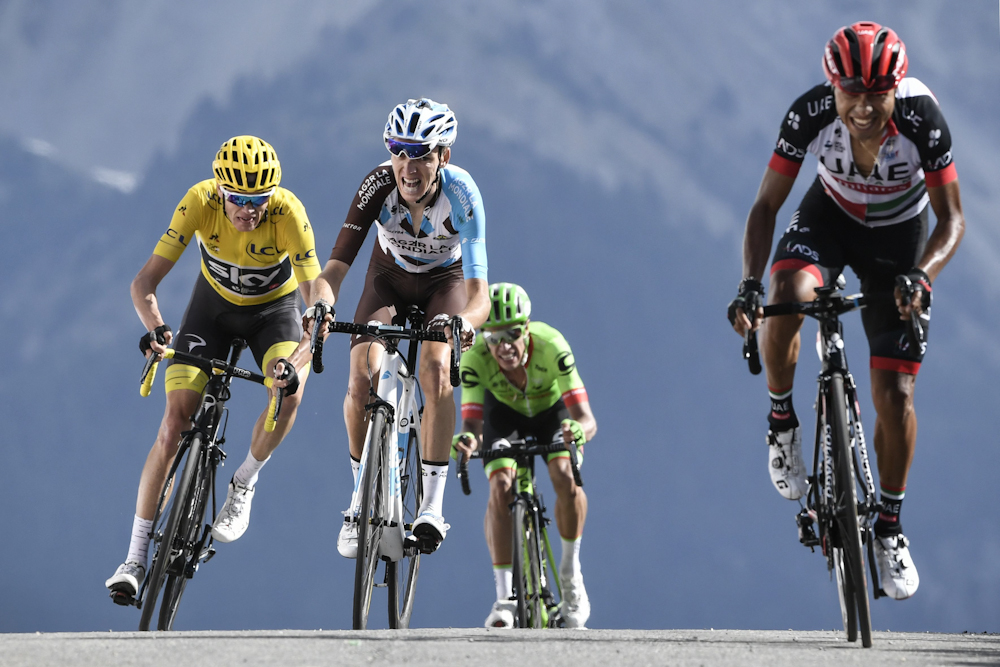
The gaps at a tight Tour de France seemed to widen to a relative abyss on its final weekend. On the podium in the centre of the Stade Vélodrome after stage 20, Chris Froome (Sky) stood bathed in late afternoon sunshine and ensconced in the yellow jersey. Scarcely a hundred yards away, Romain Bardet (AG2R La Mondiale) sat slumped against a concrete wall in a tunnel beneath the stands, blinded by the harsh light of the television cameras.
Bardet began Saturday's time trial in second place, just 23 seconds down on Froome and daring to dream of wresting the maillot jaune from his back. He ended it looking over his own shoulder and only just holding onto third overall, mere hundredths of a second ahead of Mikel Landa (Sky).
The 22.5-kilometre test through the streets of Marseille was always liable to crown Froome as the Tour winner, but Bardet evinced optimism beforehand that he might at least hold onto second place ahead of Rigoberto Urán (Cannondale-Drapac). The crowds at the Vélodrome, smaller than anticipated but vocal nonetheless, cheered Bardet down the start ramp as though he might even deliver France's first Tour victory since 1985.
The race of truth provided an inexorable verdict. By the first time check after 10 kilometres, Bardet was 43 seconds down on Froome and had already slipped behind Uran in the virtual standings. Come the second check atop the climb of Notre-Dame de la Garde, the deficit had yawned out to 1:14, and Froome would closing to within sight of Bardet on the final run up the Avenue du Prado back to the Stade Vélodrome.
More pressingly, Bardet was now in danger of losing even a place on the podium to Landa, who stood anxiously watching events unfold on the big screen. Climbing from the saddle one final time, Bardet swooped into the Vélodrome and crossed the line in 52nd place on the stage, 2:03 down on winner Maciej Bodnar (Bora-Hansgrohe).
"I'm exhausted. I gave everything," Bardet said quietly to the scrum of reporters crouched around him in the tunnel. "Today, it didn't really go well. I haven't been feeling very healthy the past few days and I paid for it dearly. I quickly saw that I wasn't in the match, so I did the time trial with my head rather than my legs."
Even before the stage began, the feeling in Bardet's legs told him that the maillot jaune was beyond him. In the tumult beyond the finish line, it initially seemed as though he had missed out on the podium altogether. Word eventually filtered through that he had preserved third place, 2:20 down on Froome and, officially, mere second ahead of Landa.
Get The Leadout Newsletter
The latest race content, interviews, features, reviews and expert buying guides, direct to your inbox!
"I wasn't thinking about that, I was just thinking about getting to the line as quickly as possible," Bardet said. "I'm starting to know my body and I knew that I didn't have the legs. I was starting to feel the fatigue after the Izoard stage, I was getting weaker. I didn't feel well when I woke up this morning, but I knew that I couldn't lay down arms. I succeeded a little bit by keeping the podium, so I'm happy all the same."
Shortly afterwards, AG2R La Mondiale's manager Vincent Lavenu edged his way through the crowd to kiss Bardet on the cheek and murmur a few words of consolation. A distant second a year ago, Bardet was, despite the final classification, Froome's most dangerous challenger in the mou this time around.
"I didn't say much, because we need to let him recover," Lavenu said. "We have to focus on the positive, third in the Tour de France isn't to be dismissed. He fought like a devil for the three weeks and his legs weren't going around today. But he gave everything and managed to save third place. Obviously, we were hoping for better, but that's sport. He gave his all, and so did the team, so we have no regrets. He wasn't far away from pulling off a big exploit. It will come."
Time trial
An hour or so later, Bardet took a seat in the press centre behind the Stade Vélodrome, though he admitted that scarcely enough time had paced to put the day's events in their proper context. "I'd need a bit of perspective to analyse it. There's a lot of emotion today," Bardet said, adding that he did not expect Landa to attempt to snatch third on the final day. "But anything can happen: there's no certainty in cycling."
Despite the hopes of the crowds in Marseille, the brace of mountain stages in the Alps were, in truth, Bardet's final chance to take the yellow jersey. He was game in his attempts on the Col de Galibier and the Col d'Izoard, but he was unable to distance Froome and confessed that he had paid a price for those efforts in the days since.
"I picked up a cold after the Alps, but the Tour is an endurance race and that's part of it," Bardet said. "I didn't feel very good today, but during the Tour there are always days when you are better or worse. You need to be consistent over three weeks."
Compared to a year ago, Bardet has certainly ridden with greater continuity over the course of this Tour, and his aggregate time across the race's eight mountain stages was 18 seconds quicker than Froome's. In a mere 36 kilometres of time trialling, however, Bardet conceded 2:35 to the Briton, and therein lies much of the tale of his defeat.
"I can improve a bit, especially in the time trial," Bardet said. "I made a choice not to focus on the time trial because it's not the way I like to ride. Going out to train on my time trial bike is a little bit boring for me. I paid a high price today, but I'm still only 26. I want to fight in the next few years for the win."

Barry Ryan was Head of Features at Cyclingnews. He has covered professional cycling since 2010, reporting from the Tour de France, Giro d’Italia and events from Argentina to Japan. His writing has appeared in The Independent, Procycling and Cycling Plus. He is the author of The Ascent: Sean Kelly, Stephen Roche and the Rise of Irish Cycling’s Golden Generation, published by Gill Books.